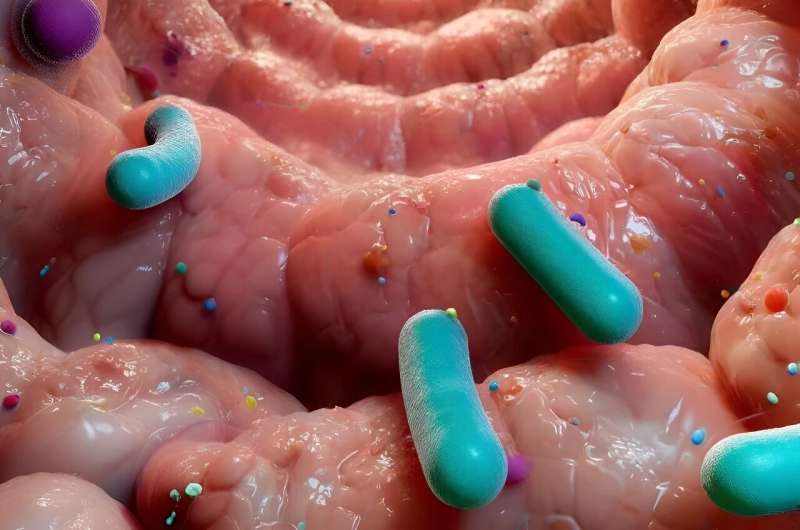This article has been reviewed according to Science X's editorial process and policies. Editors have highlighted the following attributes while ensuring the content's credibility:
fact-checked
proofread
Gut bacteria and inflammatory bowel disease: Exploring the potential of prebiotics

A growing body of research suggests that manipulating gut bacteria may offer a promising approach to managing inflammatory bowel disease (IBD), a chronic and debilitating condition affecting millions of people worldwide.
IBD, encompassing Crohn's disease, ulcerative colitis, and unclassified IBD, is characterized by chronic inflammation of the digestive tract. Conventional treatments aim to control symptoms and prevent complications. However, they often have limited effectiveness and can come with side effects.
This new research published in eGastroenterology explores the potential of prebiotics, dietary fibers that nourish beneficial gut bacteria, as a therapeutic strategy for IBD. Studies have shown that a healthy gut microbiome plays a crucial role in maintaining gut health, and alterations in this bacterial community are associated with IBD.
Researchers believe that promoting the growth of beneficial bacteria through prebiotics may restore balance in the gut and alleviate IBD symptoms. This hypothesis has been evaluated in a number of clinical studies. More research on humans is needed to fully understand the personalized responses that occur in these IBD patients before clinical recommendations can safely be made.
The review highlights the therapeutic potential of various prebiotics derived from different food sources, including:
- β-fructans (found in chicory root, garlic, and bananas)
- Galacto-oligosaccharides (GOS) (found in legumes like lentils and chickpeas)
- β-glucans (found in oats, mushrooms, and yeast)
- Xylo-oligosaccharides (XOS) (derived from sugarcane, corn cob, and rice husk)
- Pectin (found in citrus fruits and other fruits and vegetables)
- Resistant starch (RS) (found in unripe bananas, potatoes, and high-amylose maize starches)
- Glucomannan (GM) (found in the konjac root)
Preclinical studies in animal models of colitis have shown promise for select prebiotics in reducing inflammation, improving gut barrier function, and promoting the growth of beneficial bacteria. However, it is important to note that these animal models demonstrate production of fiber-fermentation byproducts such as short chain fatty acids (SCFA) is typically associated with these beneficial effects and SCFA are typically reduced in IBD patients.
Thus, while some clinical studies have yielded positive results, several significant studies have recently highlighted detrimental effects in select patients, especially those whose gut microbiota are altered and unable to properly utilize these prebiotic fibers. These studies highlight the personalized responses to different prebiotics and demonstrate a need for more research to determine the most effective prebiotics and their optimal dosages for managing IBD in humans.
This approach holds significant promise for improving the lives of patients with IBD. By harnessing the power of gut bacteria, researchers are paving the way for a new generation of treatments that target the root cause of the disease.
More information: Amin Ariaee et al, Prebiotic selection influencing inflammatory bowel disease treatment outcomes: a review of the preclinical and clinical evidence, eGastroenterology (2024). DOI: 10.1136/egastro-2023-100055





















